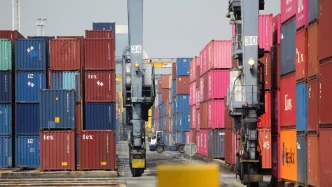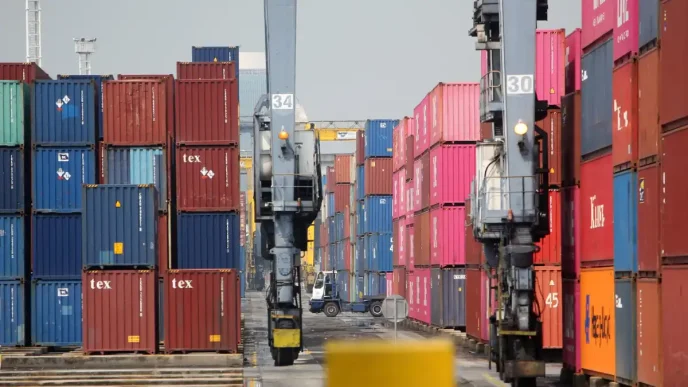In a significant move to address wage disparities and bolster economic equity, Malaysian Prime Minister Datuk Seri Anwar Ibrahim has announced an expansion of the country’s minimum wage policy to cover graduates and semi-skilled workers. This initiative, unveiled during the tabling of the 13th Malaysia Plan (13MP) in the Dewan Rakyat on July 31, 2025, targets Technical and Vocational Education and Training (TVET) graduates classified under Masco code 8 and above, aiming to ensure that salaries reflect the qualifications and skills of the workforce.
A Push for Fair Wages
The expansion of the minimum wage policy marks a pivotal step in Malaysia’s ongoing efforts to create a more inclusive labor market. Speaking before parliament, Anwar emphasized the government’s commitment to fairness, stating, “This effort is aimed at ensuring fair wages that reflect the qualifications and skills of our workers” (July 31, 2025). The policy builds on previous wage reforms under the Madani administration, which has already raised the minimum wage twice—from RM1,200 to RM1,500, and subsequently to RM1,700—through a combination of minimum wage orders, the Progressive Wage Policy, and public service salary reforms.
For employees of government-linked investment companies (GLICs) and government-linked companies (GLCs), a living wage benchmark of RM3,100 per month has been established, setting a precedent for private sector employers. Anwar urged major companies to adopt similar decent living wages, highlighting that such practices are already in place among state-affiliated entities. This push for higher wage standards is part of a broader strategy to ensure that economic growth translates into tangible benefits for workers across various sectors.
Boosting Employment and Skills Development
Under the 13MP, which outlines Malaysia’s development agenda for the coming years, the government aims to create 700,000 new jobs in the manufacturing sector and an additional 500,000 career opportunities in the digital economy. These ambitious targets reflect Malaysia’s focus on industrial and technological advancement as key drivers of economic progress. To support this vision, the role of the National Wage Consultative Council will be strengthened, while the e-Masco portal—a digital platform for wage monitoring—will be enhanced to provide greater transparency and responsiveness in tracking salary trends.
A particular emphasis has been placed on TVET graduates, who are increasingly seen as vital to Malaysia’s skilled labor force. According to Anwar, 95.6% of TVET graduates secure employment within six months of completing their training, with most earning salaries above the current minimum wage threshold of RM1,700 (July 31, 2025). This high employability rate underscores the effectiveness of vocational training programs in preparing workers for in-demand roles, particularly in technical and industrial fields.
Streamlining Wage Structures for Economic Equity
Beyond job creation, the Malaysian government is prioritizing reforms to wage structures to ensure a fairer distribution of economic gains. Anwar noted that efforts will be expedited to streamline these structures, addressing disparities that have long persisted in the labor market. “At the same time, the government is encouraging major companies to provide decent living wages” he reiterated, pointing to the example set by GLICs and GLCs (July 31, 2025). This approach aims to create a ripple effect, encouraging private enterprises to follow suit and adopt wage policies that support a sustainable standard of living for their employees.
The focus on wage equity comes at a time when Malaysia is grappling with the challenges of balancing economic growth with social welfare. The manufacturing and digital sectors, identified as key areas for job creation under the 13MP, are expected to play a critical role in driving national productivity. However, ensuring that the benefits of this growth reach all segments of society remains a pressing concern. By extending minimum wage protections to graduates and semi-skilled workers, the government hopes to address income inequality and provide a stronger safety net for those entering the workforce with specialized training.
Regional Context and Economic Implications
Malaysia’s wage reforms must be viewed within the broader context of Southeast Asia, where labor policies vary widely across countries. Neighboring nations like Singapore have long implemented progressive wage models for certain sectors, while others, such as Indonesia, are still working to establish consistent minimum wage standards across regions. Malaysia’s latest policy expansion positions it as a leader in the region for labor market reforms, potentially setting a benchmark for others to follow. However, the success of these measures will depend on effective implementation and cooperation from the private sector, which employs a significant portion of the country’s workforce.
Economists have noted that while raising minimum wages can boost worker morale and purchasing power, it may also increase operational costs for businesses, particularly small and medium enterprises (SMEs). In Malaysia, where SMEs account for a substantial share of employment, the government will need to balance wage hikes with support mechanisms—such as tax incentives or subsidies—to prevent undue financial strain on employers. Without such measures, there is a risk that some businesses may resort to layoffs or reduced hiring to offset higher labor costs, potentially undermining the policy’s intended benefits.
Challenges and Opportunities Ahead
One of the key challenges in implementing the expanded minimum wage policy will be ensuring compliance across diverse industries and regions. Malaysia’s economy is characterized by significant disparities between urban centers like Kuala Lumpur and rural areas in states such as Sarawak and Sabah. While urban workers may benefit more readily from wage increases due to higher demand for skilled labor, those in less developed regions could face slower progress. Bridging this gap will require targeted interventions, including incentives for companies to invest in rural areas and expand job opportunities beyond major cities.
Another critical factor is the need for continuous upskilling and reskilling programs to keep pace with evolving industry demands. The high employment rate among TVET graduates is a positive indicator, but as technology advances—particularly in the digital economy—workers will need access to ongoing training to remain competitive. The government’s commitment to creating 500,000 jobs in the digital sector is a step in the right direction, but it must be accompanied by robust educational and vocational initiatives to prepare the workforce for these roles.
A Forward-Looking Vision
Malaysia’s expansion of its minimum wage policy to include graduates and semi-skilled workers signals a broader shift toward prioritizing economic equity and social justice. By focusing on fair wages, job creation, and labor market reforms, the government aims to build a more resilient economy that benefits all citizens. The emphasis on TVET graduates and the digital economy also reflects an understanding of the changing nature of work, where technical skills and adaptability are increasingly valued.
Yet, as these reforms unfold, their long-term impact on Malaysia’s economic landscape remains to be seen. Will businesses embrace the call for decent living wages, or will cost concerns hinder progress? How will rural communities be integrated into this vision of growth? These questions loom large as the country navigates the complexities of balancing worker rights with economic realities. For now, Anwar’s announcement marks a promising step forward, one that could redefine Malaysia’s approach to labor and prosperity in the years ahead.
















